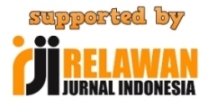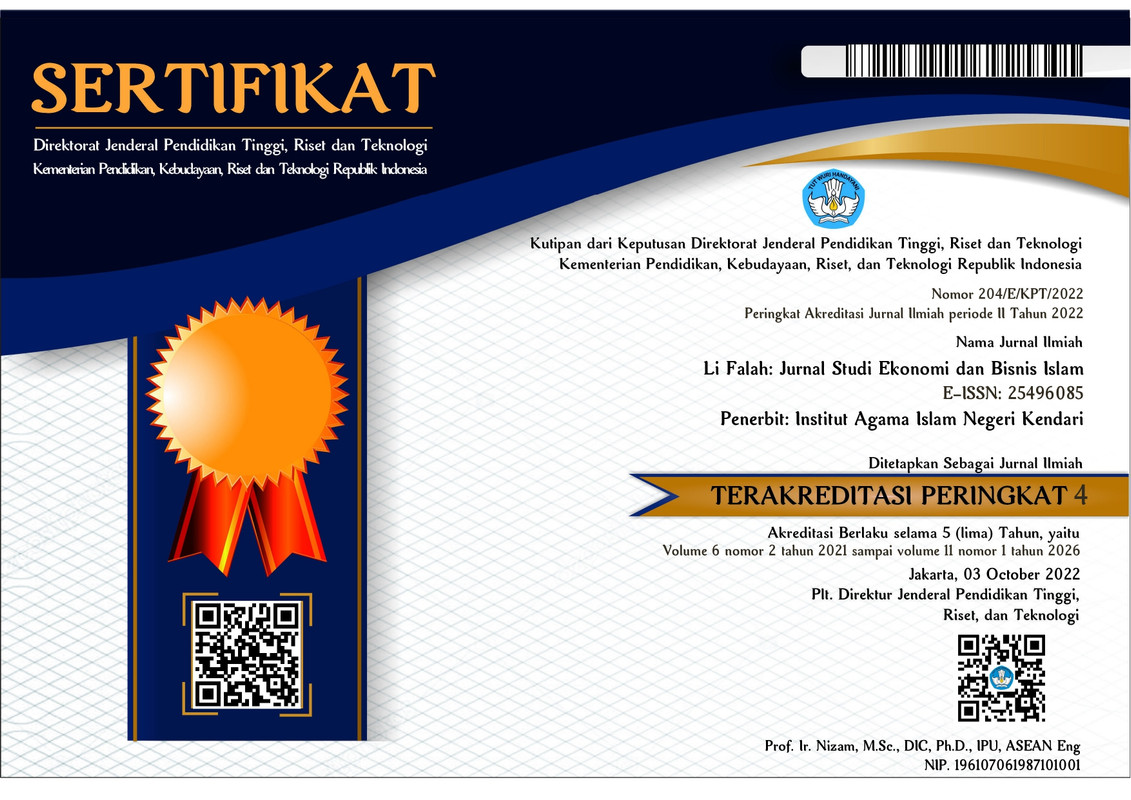Impact of Productive Waqf Management in Indonesia and Malaysia: Systematic Literature
Abstract
In the management of productive waqf, Indonesia and Malaysia are countries that are quite serious in dealing with waqf issues. Both countries are also predominantly Muslim, so the impact of productive waqf management is certainly very helpful for the two countries' economies. Using the Systematic Literature Review (SLR) method to describe the impact of productive waqf management in Indonesia and Malaysia. There were 75 journals studied, filtered by timeline, type, language, country, topic and participant. Ten articles that meet the criteria. SLR identified that 90% of the population are Nazhir or waqf managers, which is a very important population for the success of productive waqf management. The agricultural management sector was the most widely used by Nazhir to maximize productive waqf with a percentage of 40%. The health sector, such as hospitals and clinics, became the productive waqf management sector which Nazhir often used to maximize income with a percentage of 30%. Then in the rental housing sector with a percentage of 20% and 10% in the minimarket or retail sector and others. The SLR method has identified a management system with a profit-sharing system, and investment allocation mapping is the method used by Nazhir.
Keywords
Full Text:
PDFReferences
Akhlaq, S. K., 2021. Analisis Strategi Pengelolaan Wakaf sebagai Bisnis Sosial Islam - Study Kasus Yayasan Wakaf Produktif Pengelola Aset Islami Indonesia. Iltizam Journal of Sharia Economics Research, p. doi.org/10.30631/iltizam.v5i2.743 .
Amarodin, M., 2019. Optimalisasi Pemberdayaan Wakaf Produktif Di Indonesia (Ikhtiar Strategis Dalam Membangun Kesejahteraan Ekonomi Keumatan). Jurnal Eksyar (Jurnal Ekonomi Syariah) Vol. 06 No. 02, p. 178 – 190.
Arif Budianto, S. F., 2021. Dampak Wakaf Produktif Dalam Pembangunan Infrastruktur Griya. Jurnal Ekonomi Syariah Teori dan Terapan, pp. 231-242 DOI: 10.20473/vol8iss20212pp231-242.
Bastian, I., 2016. Strategi Manajemen Sektor Publik. Jakarta: Salemba Empat .
Dahlan, R., 2016. Analisis Kelembagaan Badan Wakaf Indonesia. ESENSI: Jurnal Bisnis dan Manajemen, Vol. 6 No. 1, p. 113.
Difi Dahliana, 2020. Wakaf Produktif Mengentaskan Pengangguran. Osf Preprints, p. https://doi.org/10.31219/osf.io/94yu5.
Inayah Rahman, T. W., 2020. Model Pengelolaan Wakaf Produktif Sektor Pertanian untuk Meningkatkan Kesejahteraan Petani (Studi Kasus Pimpinan Ranting Muhammadiyah Penatarsewu Sidoarjo). Jurnal Ekonomi Syariah Teori dan Terapan p, pp. 486-498; DOI: 10.20473/vol7iss20203pp486-498.
Islam, D. P. W. &. D. J. B. M., 2007. Pedoman Pengembangan Wakaf Produktif. Jakarta: Departemen Agama RI.
Ismail, C. Z., 2015. Administration and Management of Waqf Land in Malaysia: Issues and Solutions. Mediterranean Journal of Social Sciences Vol. 6 No.4, 6(04), p. 614.
Salleh, F., 2021. Developing a Waqf Crop Micro Takaful Framework Through Crowdfunding-Waqf in Malaysia. Advances in Economics, Business and Management Research, pp. 194-200, doi.org/10.2991/aebmr.k.211117.027.
Salleh, M. C. M., 2020. Developing a sustainable model of Waqf-based Takaful for flood victims in Malaysia. Journal of Islamic Accounting and Business Research, pp. 1941-1952. doi.org/10.1108/JIABR-10-2016-0114.
Sutra, R., 2020. Implementasi Pengolahan Wakaf Produktif Di Global Wakaf Dalam Menyejahterakan Umat. Sakina: Journal of Family Studies, p. Vol 4 No 3 .
Utami, A. F., 2019. Strategi Pengembangan Wakaf Produktif untuk Kesejahteraan Umat. ISLAMICONOMIC: Jurnal Ekonomi Islam, p. DOI: 10.32678/ijei.v10i2.125.
Vika Annisa Qurrata, d., 2019. The Implementation And Development Of Productive Waqf In Indonesia: Case At Malang Islamic Hospital. Humanities & Social Sciences Reviews, Vol 7, No 4, pp. 533-537, doi.org/10.18510/hssr.2019.7471.
Wahono, R. S., 2022. Systematic Literature Review: Pengantar, Tahapan dan Studi Kasus. [Online]
Available at: https://romisatriawahono.net/2016/05/07/literature-review-pengantar-dan-metode/
Yusuff J. Amuda, A. C. E. a. O. H. B., 2019. An Agricultural Approach to the Commercialization of Cash Waqf between Malaysia and Nigeria. Journal of Advanced Management Science, pp. 344-348.
Zunaidah Ab Hasan, d., 2019. Management of Waqf Assets in Malaysia. International Journal of Nusantara Islam, pp. 59–68, DOI: http://dx.doi.org/10.15575/ijni.v3i1.412.
DOI: http://dx.doi.org/10.31332/lifalah.v7i2.4489
Copyright (c) 2022 Moh Agus Nugroho, Wahyudi Rusdi, Md Mahfujur Rahman

This work is licensed under a Creative Commons Attribution-ShareAlike 4.0 International License.
Li Falah : Jurnal Studi Ekonomi dan Bisnis Islam, Indexed In
Accredited By
View My Stats
Organized by : Fakultas Ekonomi dan Bisnis Islam
Published by : Institut Agama Islam Negeri Kendari
Jl. Sultan Qaimuddin No. 17 Baruga Kota Kendari Provinsi Sulawesi Tenggara
phone. +62401-3193710
Fax. +62401-3193710
Email: [email protected]



















